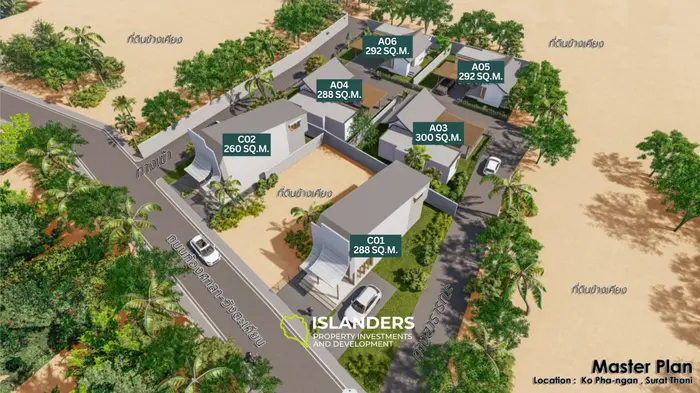Drone use in Thailand is subject to strict
regulations. Registration is mandatory for all drones, regardless of their
weight or whether they have a camera. Violating these rules can result in large
fines and even imprisonment.
Drone registration is not just a
formality, but a necessity to comply with local laws. Without registration,
drone use is considered illegal, and tourists who do not go through this
process may face serious problems.
If the drone is not registered or is used
in prohibited areas, the owner faces a fine or imprisonment.
|
Violation |
Fine
(baht) |
Additional
sanctions |
|
Flight without registration in NBTC |
up to 100,000 |
Imprisonment for up to 5 years |
|
Flight without registration in CAAT |
up to 40,000 |
Imprisonment for up to 1 year |
|
Flying in prohibited areas |
up to 200,000 |
Drone confiscation, deportation |
|
Flying above 90 m without permission |
up to 100,000 |
Drone confiscation |
|
Using a drone without insurance |
up to 50,000 |
Temporary flight ban |
💡 Important: If a tourist
violates the rules and does not register a drone, he may be blacklisted and
banned from entering Thailand.
All drones must be registered, regardless
of weight and functions. Toy drones may be an exception, but it is better to
check this with the NBTC.
Mandatory requirements for drones in
Thailand
A drone owner must comply with a number
of requirements, including registration, insurance, and flight regulations.
In what cases is registration mandatory?
- If the drone is equipped with a camera, any device with the
ability to record video must be registered.
- If the
drone weighs more than 2 kg, permission from CAAT is required.
- If the drone weighs more than 25 kg, permission from the Ministry
of Transport of Thailand is required.
Allowed and prohibited models
Some drone models may be restricted in
use or banned entirely.
|
Drone
category |
Permission
in Thailand |
|
DJI Mini 2 / Mini 3 Pro |
✅
Allowed |
|
DJI Mavic Air / Air 2S |
✅
Allowed (upon registration) |
|
DJI Phantom 4 Pro |
✅
Allowed (upon registration) |
|
FPV drones (racing) |
⚠ Requires CAAT permission |
|
Military drones |
❌
Completely prohibited |
💡 Tip: Before your trip, check if
your drone model supports CAAT and NBTC requirements.
Every registered drone must have
insurance that covers damages of at least 1,000,000 baht. Without insurance, it
is illegal to use a drone.
Insurance can be purchased:
●
Via CAAT upon registration.
●
In private insurance companies in
Thailand.
What organizations are involved in drone
registration?
- NBTC – National Broadcasting and Telecommunications Commission.
Responsible for the drone’s frequency range. Registration takes up to 30
days.
- CAAT – Civil Aviation Authority of Thailand. Responsible for
flight permits. Registration takes up to 15 working days.
💡 Important: It is prohibited to
use a drone without approval from both organizations.
What documents are needed for
registration?
|
Document |
NBTC |
CAAT |
|
Passport (copy) |
✅ |
✅ |
|
Visa and migration card |
✅ |
✅ |
|
Residence address in Thailand |
✅ |
✅ |
|
Photo of drone and controller (serial
numbers) |
✅ |
✅ |
|
Insurance policy |
✅ |
✅ |
Before submitting an application, you
need to collect all documents and make copies. For successful registration:
●
Please ensure that your passport
and visa are valid for the entire duration of your stay.
●
Prepare an insurance policy with
coverage of at least 1,000,000 baht.
●
Fill out the application in
English (Thai authorities do not accept documents in Russian).
●
Please check that the serial
numbers in the photo match the ones in the application.
Do I need to register my drone with both authorities?
Yes, registration is required with both
NBTC and CAAT. NBTC is responsible for communications and CAAT is responsible
for flight safety.
Step-by-step instructions for
registering a drone
Registration with NBTC
- Collect all documents (passport, photo of the drone, insurance).
- Fill out the
form on the NBTC website or at the office.
- Apply at the
NBTC office (in Bangkok or through representative offices in major
cities).
- Wait for approval (up to 30 days).
Registration with CAAT
- Register on the CAAT website (possibly online).
- Upload all
documents into the system.
- Pay the
registration fee.
- Wait for approval (up to 15 business days).
The entire process takes from 15 to 45
days, so start registering early!
How much does it cost to register a
drone?
Registering a drone in Thailand involves
several steps, each of which comes with certain costs.
●
Registration at NBTC – 214 baht.
●
Registration with CAAT is usually
free, but there may be administrative fees.
Where can I pay for drone registration?
●
NBTC – payment is made at NBTC
offices upon submission of documents.
●
CAAT – when registering online,
payment can be made via bank transfer.
What additional costs are possible?
●
Insurance – minimum 1,000,000 baht
coverage, cost from 1,700 baht.
●
CAAT pilot license - about 2,500
baht.
💡 The total minimum cost to
register a drone in Thailand is around 4,414 baht.
Where can you fly a drone in Thailand?
When using drones in Thailand, it is
important to be aware of permitted and prohibited areas.
|
Zone
type |
Allowed
/ Prohibited |
|
Airports (9 km zone) |
❌
Prohibited |
|
Government institutions and hospitals |
❌
Prohibited |
|
Places of mass gathering of people |
❌
Prohibited |
|
Private territory (without owner's
permission) |
❌
Prohibited |
|
National Parks (without DNP permit) |
❌
Prohibited |
|
Open spaces away from restricted areas |
✅
Allowed |
|
Places where there is no risk of trespassing
on private property |
✅
Allowed |
Minimum and maximum flight altitude
●
Maximum height – 90 meters.
●
Minimum altitude – no
restrictions, but flights that pose a danger to people and property are
prohibited.
What are the penalties for violating
airspace?
Failure to comply with drone regulations
in Thailand can result in serious fines and other penalties.
|
Violation |
Fine
(baht) |
Additional
measures |
|
Flight without registration in NBTC |
up to 100,000 |
Imprisonment for up to 5 years |
|
Flying without permission from CAAT |
up to 40,000 |
Imprisonment for up to 1 year |
|
Flying in prohibited areas |
up to 200,000 |
Drone confiscation, deportation |
|
Flying above 90 m without permission |
up to 100,000 |
Drone confiscation |
|
Using a drone without insurance |
up to 50,000 |
Temporary flight ban |
What laws regulate the use of drones in
Thailand?
The use of drones is governed by several
key laws and regulations:
●
Radiocommunication Act BE 2498 (1955) https://www.nbtc.go.th/
●
Aviation Act BE 2558 (2015) https://www.caat.or.th/
●
Privacy Act BE 2562 (2019)
💡 Important! Not only
unregistered flights are a violation of these laws, but also illegal
photography and video shooting without permission.
Can a tourist be banned from entering
Thailand for violations?
Yes, if the violation is considered
serious (such as flying in a restricted area), the tourist may be deported and
blacklisted by the immigration service. This means a ban on future entry to
Thailand.
Factors influencing entry ban:
●
Using a drone near military
installations.
●
Unauthorized filming of government
buildings.
●
Flights over royal residences.
💡 Advice: If you are detained by
the police, it is better not to argue, but to show the registration documents
for the drone.
Tips for Safe Drone Use in Thailand
How to avoid problems when shooting?
●
Always carry your drone documents
with you.
●
Avoid flying over crowds of people
as this increases the risk of an accident.
●
Check if flying in the area is
permitted before takeoff.
What to do if the drone loses connection or crashes?
●
Use the Return to Home (RTH)
function.
●
If the drone crashes on private
property, try to negotiate with the owner to return it.
●
If your drone crashes in a
restricted area, contact your local authorities for assistance.
What apps can help you control restricted areas?
●
DJI FlySafe – Provides data on
no-fly zones.
●
AirMap – up-to-date airspace maps.
●
Hover – analysis of weather
conditions and safe zones for flights.
Conclusion
Drone registration in Thailand is a
mandatory process that will help you avoid large fines and legal problems.
📌 Key recommendations:
✔ Register your drone with NBTC and CAAT before your first flight.
✔ Get insurance with coverage of at least 1,000,000 baht.
✔ Avoid flying in restricted areas (airports, government buildings, private
property).
✔ Observe the altitude limit (90 m) and keep the drone in sight.
By following these rules, you can enjoy
flying and filming without worrying about possible fines or problems with
immigration. 🚀






